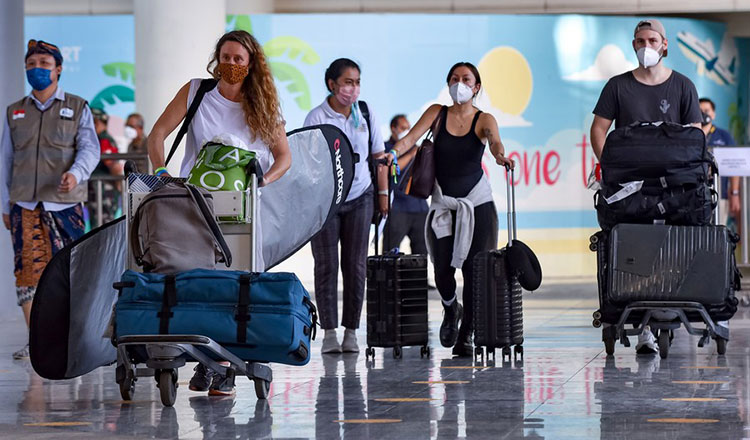
CGCC’s Co-Financing Guarantee Scheme to help Tourism Sector
July 21, 2022Latest News
Credit to Khmer Times: Published on 20 July 2022
The scheme is specifically targeted at tourism-related businesses. It provides a higher guarantee cover of 80 percent of the loan amount with a nominal guarantee fee of one percent per annum, says Wong Keet Loong, CEO of CGCC.
Business owners in the tourism sector who lack collateral can apply for a loan with a credit guarantee from a financial institution that is a partner of the Credit Guarantee Corporation of Cambodia (CGCC), according to the Ministry of Tourism.
According to an announcement from the Ministry of Tourism, CGCC launched the Co-Financing Guarantee Scheme for Tourism on 12 July to support the rehabilitation and growth of the country’s tourism sector.
The scheme is a credit guarantee, providing collateral for 80 percent of the loan from banks and financial institutions.
In case the tourism business owner lacks collateral to secure a loan in the co-financing project, they can apply with a loan guarantee from a financial institution that is a partner of CGCC.
The CGCC launched the scheme after receiving approval from the Ministry of Economy and Finance.
Wong Keet Loong, CEO of CGCC, told Khmer Times that the scheme is specifically targeted at tourism-related businesses. “It provides a higher guarantee cover of 80 percent of the loan amount with a nominal guarantee fee of one percent per annum. The scheme is mainly for loans disbursed under the Tourism Recovery Co-Financing Scheme (TRCS) of the SME Bank of Cambodia,” he said.
Loong explained that under CGCC’s current scheme, the Business Recovery Guarantee Scheme (BRGS), tourism is classified as a priority sector. It has guaranteed 15 tourism-related businesses with a loan amount of $1.78 million.
“The scheme was recently launched to complement the SME Bank’s Tourism Recovery Co-Financing Scheme (TRCS). TRCS provides low borrowing costs whilst the CFGS-TR provides credit guarantees as collateral for the loans. Business owners can obtain loans at low-interest rates without providing physical collateral,” he pointed out.
CGCC’s existing schemes also cover the tourism sector should PFI use its own source of funding and require higher loan amounts to be guaranteed. He said most businesses in this sector that have been impacted by the pandemic have either scaled down or shut down temporarily.
“To recover their business, they would need funding for renovation or refurbishments. When requesting loans from banks, they are required to pledge their collaterals. The requirements for collateral have become more stringent as FIs are more risk-averse toward the sector,” Loong said.
CGCC guarantees 80 percent of the loan and it shares the risk with the financial institution, enabling the borrower to borrow without having to pledge additional collateral. “Furthermore, the guarantee will give added confidence to the financial institution to lend to this sector,” he added.
You might also be interested in Co-Financing Guarantee Scheme to support Tourism Recovery
